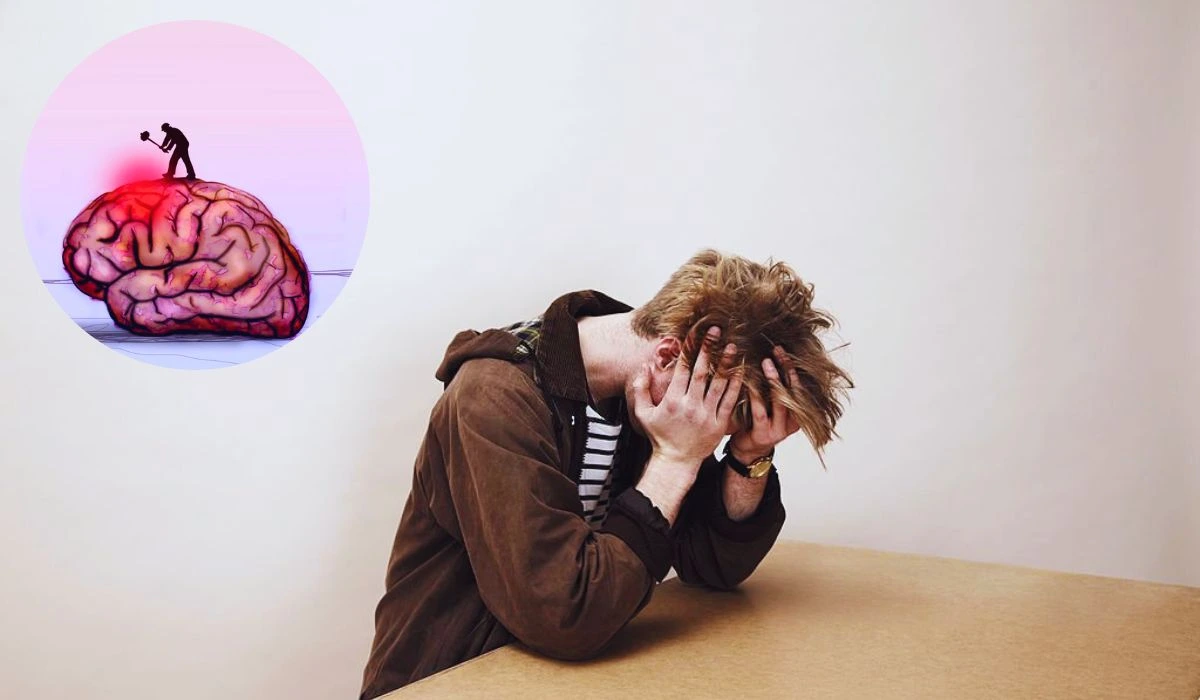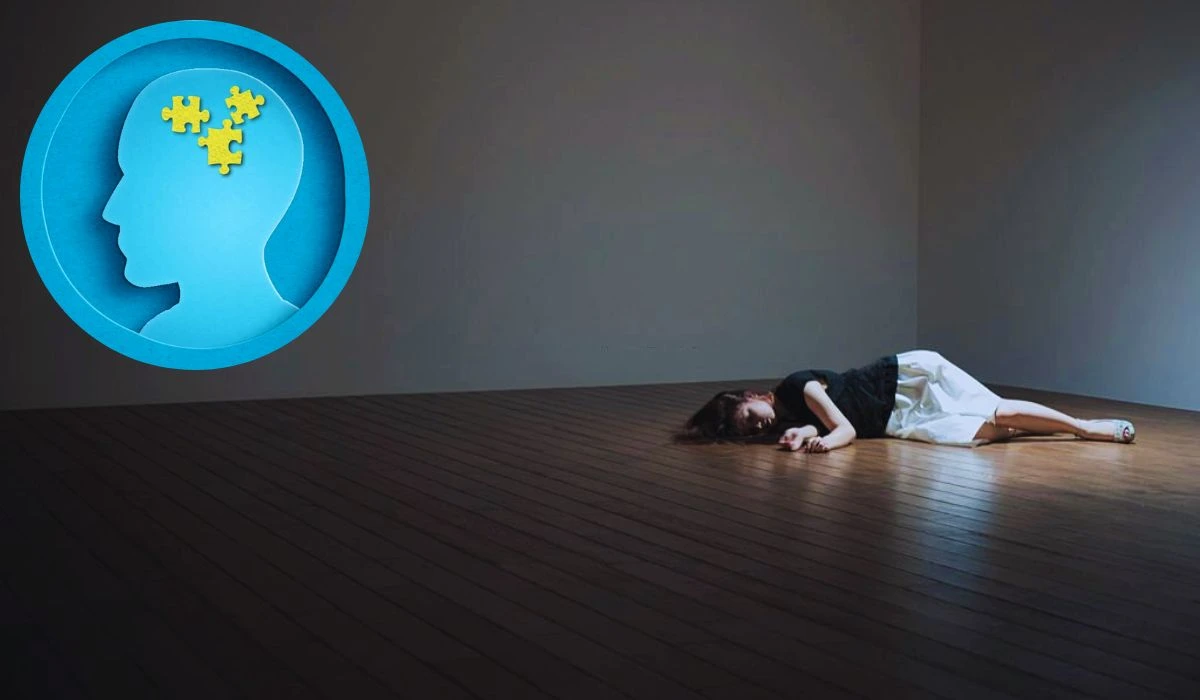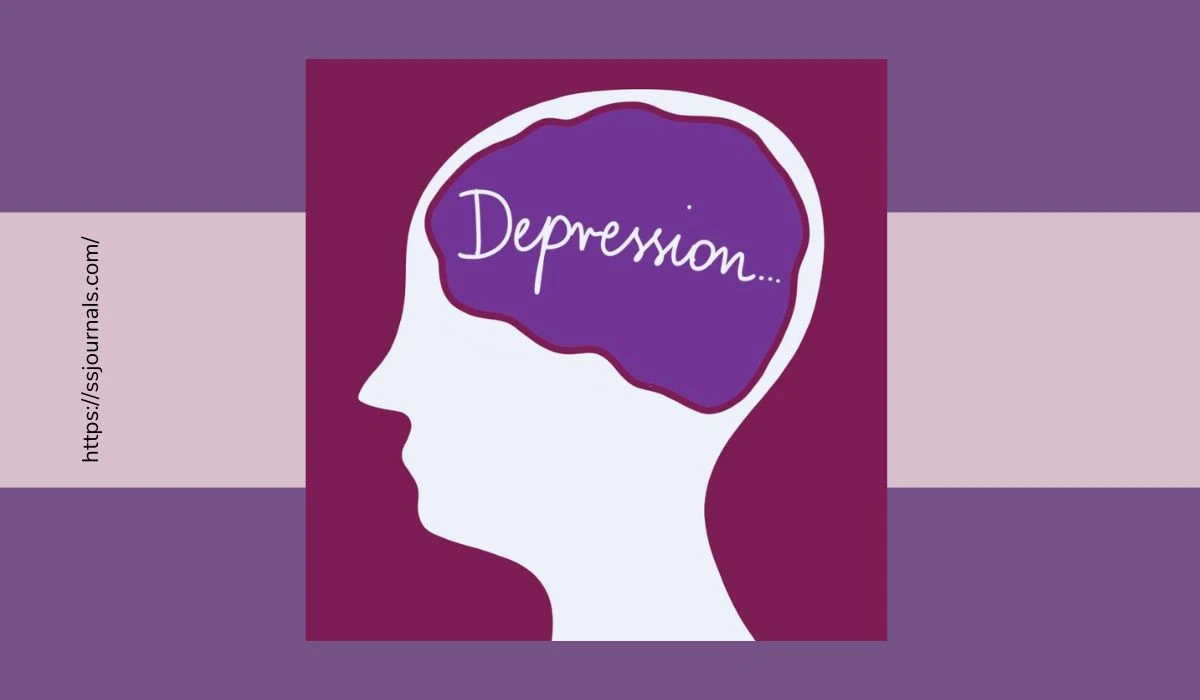Depression can have a huge effect on the brain and overall well-being. It causes changes in chemistry and structure. Serotonin and dopamine become imbalanced, causing sadness, low motivation, and hopelessness.
The amygdala, which handles emotions, becomes too active, leading to heightened sensitivity. Decision-making and problem-solving abilities decrease as the prefrontal cortex becomes less active. The hippocampus, involved in memory and emotion control, may shrink due to stress.
Sleep patterns change, disrupting circadian rhythms and leading to insomnia or extreme tiredness. These can worsen cognitive impairment and mood swings. Seek support and treatment! Therapy and meds can help restore neurotransmitter balance. Exercise can also boost mood and endorphin levels. Don’t hesitate to make it part of your healing journey.
What Causes A Depressed Brain?

Depression has many possible causes:
- Genetics can mean a person is more likely to have depression.
- Imbalances of brain chemicals like serotonin and noradrenaline add to depressive episodes.
- Stressful events like loss, trauma, or abuse can also cause it. Plus, medical conditions like cancer or heart disease may increase the risk.
- Additionally, substance abuse and certain medications can lead to depressive symptoms. It’s important to remember that depression is complex and needs personalized treatments.
Symptoms Of Depression
Depression can exhibit itself through many signs and symptoms that harm an individual’s wellness. Sadness, lack of enthusiasm for activities once enjoyed, sleep issues, and changes to appetite or weight can all be indications of depression. Everyone’s experience is different, so it’s key to see a specialist if any of these markers arise.
Effects Of Depression On The Brain
To understand the effects of depression on the brain, dive into the following sections. Get a comprehensive understanding of the intricate ways that depression can alter your brain.
▶️ Changes In Brain Structure
Studies indicate that depression causes notable changes in the brain. The hippocampus, which is vital for memory and controlling emotions, often shrinks in the case of those suffering from depression.
Moreover, the prefrontal cortex, responsible for decision-making and emotion regulation, also tends to decrease in size. These modifications contribute to the cognitive and emotional issues experienced by people with depression.
Furthermore, long-term depression can lead to further brain damage. Stress hormones, such as cortisol, can hurt neurons and weaken neural pathways. This damage may explain why untreated depression can worsen over time.
▶️ Neurotransmitter Imbalance
Depression’s effect on the brain’s neurotransmitters is powerful. These chemical messengers send signals between brain cells, affecting mood, emotions, and mental health.
When neurotransmitters are out of balance, communication in the brain is disrupted. This leads to symptoms like sadness, hopelessness, and disinterest in activities once enjoyed.
Serotonin is a neurotransmitter that plays a major role in regulating mood. Low serotonin has been linked to depression. Deficiencies in dopamine and norepinephrine can also cause depressive symptoms.
▶️ Impact On Cognitive Functions
Depression can impair cognitive functions, such as attention, memory, and decision-making. It makes thinking critically and processing information hard. Focus and completing tasks become difficult too.
Sadness and low motivation make it hard to remember new information and access already-learned knowledge. Working memory – which stores and manipulates information in the short term – can be affected too. This makes juggling multiple tasks and remembering details for problem-solving hard.
Emotional and Psychological Impact
- Cognitive Impairment
- Increased risk of other Mental Health Issues
Physical Impact
- Sleep Disturbances
- Appetite and Weight Changes
- Fatigue and Low Energy
Social and Interpersonal Effects
- Impaired Relationships
- Social Withdrawal
- Work and School Performance
Treatment Options And Strategies
To address the treatment options and strategies for dealing with a depressed brain, explore the effectiveness of medications, psychotherapy, and lifestyle changes.

These solutions provide diverse approaches to managing and alleviating the symptoms of depression, offering individuals a variety of choices to suit their specific needs and circumstances.
✅ Medications
Medications come in many forms. These can include tablets, capsules, injections, creams, or inhalation. How they work depends on factors like severity, age, history, and side effects. Dosage and frequency differ for each individual.
✅ Psychotherapy
Psychotherapy allows one to explore their inner-self, in a safe and secure setting. It can help a person gain insight and find better ways to deal with stress.
Cognitive-behavioral therapy (CBT) is one form of psychotherapy, which works on identifying and changing maladaptive thinking and behavior. Another type is psychodynamic therapy, that looks at how past experiences influence present thoughts and actions.
Group therapy may also be beneficial, as it gives people a sense of companionship and understanding. Family therapy can help the family unit in communication and conflict resolution.
✅ Lifestyle Changes
Making changes to a lifestyle can have a big influence on overall health and well-being. These changes cover different parts of life, such as habits, routines, and choices. Through these alterations, people can see major improvements in their physical and mental wellness.
- Doing regular exercise: A key lifestyle change is to make sure physical activity is part of daily routines. This can include brisk walking, cycling, swimming, or playing sports. Exercise not only helps maintain a healthy weight but also helps with cardiovascular health and boosts mood.
- Having a balanced diet: Another necessary part is having a balanced diet with fruits, vegetables, whole grains, lean proteins, and healthy fats. Having essential nutrients can help the body function better and reduce the risk of chronic diseases.
- Getting enough sleep: Making sure to get enough sleep is critical for overall well-being. Creating a good sleep environment and sticking to a sleep schedule help with sleep quality, cognitive function, moods, and immune system function.
- Managing stress: Doing things like meditation, deep breathing, yoga, or hobbies can lower stress levels. Chronic stress affects physical health and mental well-being, so managing it is important.
Coping And Support
To cope with the effects of a depressed brain, utilize self-help techniques, seek professional help, and build a support network. These sub-sections provide solutions for managing depression.
💠 Self-Help Techniques
Self-help can make a real difference in managing stress and increasing well-being. Here are three strategies to help individuals cope:
- Mindfulness meditation. It raises self-awareness and lowers anxiety. Focus on the present moment without judgment for a calmer state of mind.
- Physical exercise. It boosts mood and reduces stress. Exercise releases endorphins, which act as natural painkillers and mood lifters.
- Healthy sleep routine. This is vital for overall well-being. A consistent sleep schedule helps regulate emotions and improves cognitive functioning.
💠 Seeking Professional Help
When life gets tough, seeking professional help can be incredibly helpful. Trained professionals have the skills and knowledge to get you through difficult times.
Therapy sessions provide a safe and confidential place to explore your emotions and thoughts. Therapists use various techniques to help clients better understand themselves and develop strategies for dealing with problems.
💠 Building A Support Network
Constructing a support system is essential to manage life’s difficulties. It gives a feeling of belonging, emotional approval, and practical help when required.

